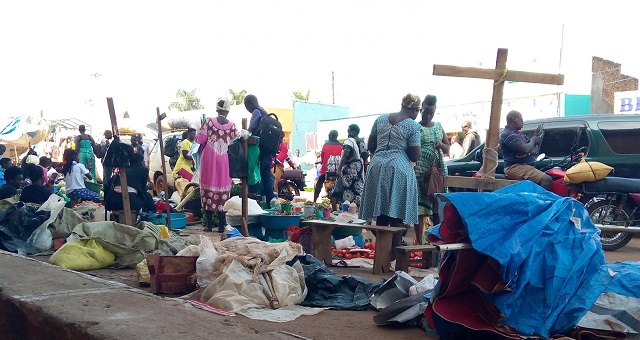
Arua, Uganda | THE INDEPENDENT | Traders in Arua central market have asked the city authorities to evict street vendors whom they accuse of frustrating their businesses.
The vendors held a meeting in Arua city on Monday where they issued an ultimatum of seven days to the authorities. They argue that since most commodities are scattered along the different streets within Arua city, most people prefer buying from the street vendors instead.
Since there are 500 stalls in the central market that are unoccupied, the traders want the vendors to be resettled inside the market and occupy the empty spaces.
John Anguyo, Secretary-General Arua Main Market Vendors Association said that they want the city authorities to protect their livelihoods by allowing all vendors to trade within the gazetted market.
Nelson Dada, the Chairman General Arua Main Market Vendors Association said their repeated pleas to the city officials to prevail over the street vending and the continued operations of Owino market in Lobida fell on the deaf ears.
Jackie Ayikoru, a cloth retailer says that most of her colleagues have lost business due to the many street vendors and the remaining few have also taken the trade to the streets. According to Ayikoru, if street vendors are resettled back in the markets, members of the general public will have no option but to purchase products from the market.
Margret Driwaru, another trader wonders why the authorities have failed to prevail over the street vendors who especially have stalls in the new market.
“We still have a lot of spaces in the upper flow. The city authorities should make sure that people occupy these places,” Driwaru said.
Sam Wadri Nyakua, the Arua City Mayor says that they are in the process of returning the vendors to the market.
Currently, vendors with stalls in the new market pay rent of 7,000 and 10,000 Shillings per month, while those with lockup shops pay100,000-250,000 depending on the location.
Arua Main market was constructed with funds from African Development Bank at a tune of Shs34.9 billion under the second phase of the Market and Agricultural Trade Improvement Program (MATIP II). It has a bulk storage facility, daycare centre, clinics and pharmacies, and restaurants, among others.
****
URN
 The Independent Uganda: You get the Truth we Pay the Price
The Independent Uganda: You get the Truth we Pay the Price





